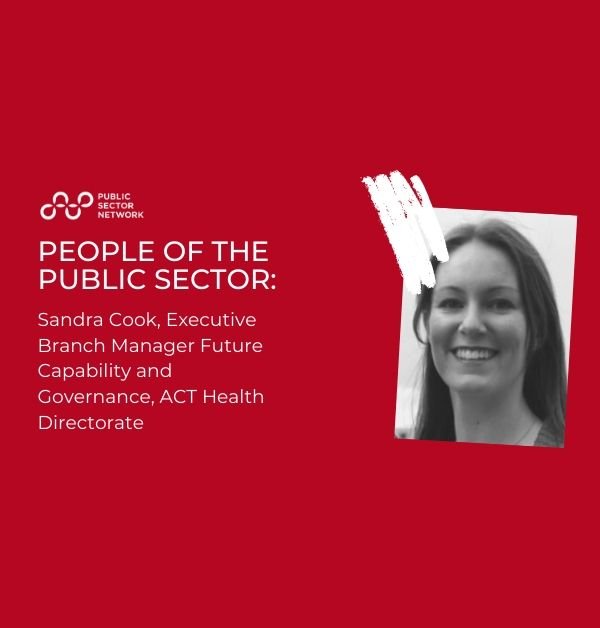Tell us about the journey to your current role and what it this role entails?
I have had a very diverse journey to get to my current role. I trained as an Exercise Physiologist and worked in private practice before moving to ACT Health to manage the Rehabilitation service at the Canberra Hospital. I was interested in how we could improve our service through policy and technology changes and so I enrolled in a Masters of Juris Doctor at the University of Canberra and then moved to an ICT Project Officer role to implement the first digital Medical Imaging system at Canberra and Calvary Hospitals. Within 3 months I was asked to manage the project and implemented 12 months later. I completed my Masters in Juris Doctor and was admitted to the Supreme Court in the ACT, just before having the first of my two children. I returned to work after 9 months of Maternity Leave into full time Program Management roles to oversee multiple projects within the Health environment, firstly in the administrative support projects and then for clinical systems. My current role now is in the Digital Solutions Division of ACT Health as the Executive Branch Manager of Future Capability and Governance. I am responsible for the entire Portfolio of ICT projects in ACT Health from clinical and administrative systems to infrastructure work. I am also responsible for governance, risk and the digital strategy.Can you describe a project you are working on/recently completed, and any key challenges you have faced along the way?
One of the key projects we delivered within ACT Health recently was our Medication Management system. This was changing the paper-based medication charts at the end of hospital beds to be on the computer systems. There were many advantages in doing this work such as highlighting adverse drug to drug interactions to the clinicians ordering clinicians at the time they were ordering, tracking the time drugs were administered and having drugs ordered automatically populated on the medication chart. However, there were many challenges in this space as well. The workforce had predominately not used computers in real time when interacting with patients and so we needed to deliver devices that were easy to access and use, there was a significant training and education component and keeping the system up to date with the change in drugs occurring was also challenging. Governance has been important to ensure the right clinical groups are set up to help manage the drug catalogue in this system. Ensuring that appropriate support was provided at the time of rolling the system out was also important. For our area, we worked with the nurse rostering unit and we rostered nurses who were trained as super users as support for the project rather than using project team members for this role. This ensured that we had nursing staff that would remain on the wards for ongoing support. After rolling out to the adult acute areas of the Canberra Hospital we were then asked to rollout to the prison (the Alexander Maconochie Centre). This presented technical challenges with how to access the solution without wifi, devices to be used, workflows in a secure setting, setting up the solution when the people in the prison are not patients for the purposes of the system but are detainees and how we would resolve the requirement for a patient record. All of these challenges were worked through one by one through the governance structures so that this could be achieved to improve efficiencies for the clinicians working in the prison and for the safety of the detainees.What did you learn from this project? What did it achieve?
Healthcare is challenging and it is important to be precise as peoples lives really do hang in the balance. It is important to ensure that the right people come together around the table with varied specialist knowledge to assist with delivery of digital solutions. It is not just about putting paper processes onto the computer. It is important to understand the detailed steps that need to be completed and how the workflow will work for clinicians and their patients. The last thing we want to do is to put a computer in the way of patient/ clinician interactions so wherever we can automate we try and whatever we can do to make things easy to access (like using staff cards to tap onto the computer and take staff to the systems they need to do their work) we implement. The system is constantly being worked on to keep the medication formulary up to date and to work on edge case issues that arise. Having the system on computer has resulted in easier access to information that is legible (which is important if anyone has seen doctors handwriting!) and we are hoping to see a reduction in medication errors from the solution which we will assess into the future.What excites you most about the future?
Im excited about our new 10-year Digital Health Strategy and delivering systems to achieve the benefits that are outlined in that Strategy. We have really tried to have the patients and clinicians at the centre of everything we do and try to always remind ourselves of the end goal which is to try and make the experience easier for users and staff delivering healthcare services.If you could give one piece of advice to someone looking to further their career in government, what would it be?
Remember that you have had a path that is different to everyone else. Be authentic and use your different experience to help you shape what your uniqueness is. Government always needs people who think differently to achieve better services for our community. Trust that your experience and the skills that you have developed from your past can help shape government services for the future. Actively contribute to the work you do and remember what it is that you are there to do for your community and you will be successful.Where do you look to for further education? E.g. articles, podcasts, news sources, courses University, Courses - internal?
Continued education has been very important for me and I look to learn from all sorts of different places. I am a member of 3 professional associations and have done university and industry courses. I attend conferences and participate in multidisciplinary workshops wherever I can. I read targeted articles through PulseIT, HIMSS, HISA, ACS and love to see government updates through the Mandarin and other agency Twitter or LinkedIn posts.What are you most looking forward to, about the Public Sector Innovation Show 2020?
Getting another opportunity to surround myself with other people who are passionate about providing government services to the communities they live in.






























